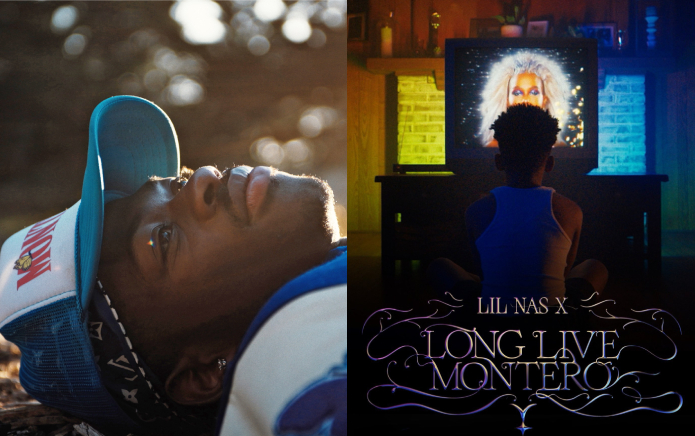To watch the singer-rapper Lil Nas X in the documentary “Lil Nas X: Long Live Montero” is to witness a Black queer man embody a power that still feels very new.
Directed by Carlos López Estrada (“Raya and the Last Dragon”) and Zac Manuel, this film, streaming on Max, is historically important given its subject’s place in hip-hop, a genre dominated by heterosexuality and hypermasculinity. New interview footage with Montero Lamar Hill, a.k.a. Lil Nas X, from both on the road and in his home, is juxtaposed with performances from the artist’s recent “Long Live Montero Tour,” a celebration of queer eroticism and joy.

But the scenes are assembled like the wall collage of pop stars that we see in his otherwise empty bedroom, resulting in frustrating interview segments that are both broad and cursory. Lil Nas X is forthcoming in the documentary about his preshow bowel movements, for example, but is less open about more meaningful thoughts, such as how his religious journey is connected to his work.

When the musician Little Richard, known for his flashy attire and complicated past, comes up in a 1972 interview clip that Lil Nas X briefly comments on, the film makes a quick point about Black queer artists who have struggled to be out. It then falters by generalizing a history that, with some added details, could have better emphasized Lil Nas X’s current impact on culture.

“Saying actual words — it’s really hard to do,” Lil Nas X eventually admits. Still, the best parts of this documentary are onstage, where his freedom to be himself tells its own thrilling story.
The post ‘Lil Nas X: Long Live Montero’ Review: A Hip-Hop Trailblazer appeared first on New York Times.
News
Test đẩy bài từ cms
Test đẩy bài từ cms, xóa sau khi dùng.
LIL NAS X SHOWS LATTO HIS ROMANTIC SIDE AFTER ‘SUNDAY SERVICE’ NAMEDROP by SAM MOORE Published
Lil Nas X has shown his romantic side with Latto after she namedropped him on her recent single “Sunday Service.” The “Put In Da Floor” rapper posted a picture on…
Lil Nas X Gets Latto A Bouquet Of Roses After Being Name-Dropped In “Sunday Service”
It’s officially been a week since Latto dropped “Sunday Service” last Friday (Feb. 9). The song included a speculatory jab at Ice Spice and mentioned Lil Nas X, the…
‘He Needed Somebody to Do Time with Him’: Resurfaced Clip Proves Jaden Smith Tried to Tell Everyone One Year Ago That Tupac Proposed to Mom Jada Pinkett Smith While Incarcerated
Jada Pinkett Smith fans are still reeling from her claim that close friend Tupac Shakur once proposed to her. But for her son, Jaden Smith, there is nothing new about the…
From Lil Nas X to Pink, 5 pop stars who’ve had ‘disrespectful’ fan interactions on stage
Lil Nas X has become the latest celebrity to be bombarded with inappropriate items thrown on stage during a large performance. One week after he wowed huge crowds…
YSL Beauty and Lil Nas X unveil new campaign images
YSL Beauty has unveiled its latest campaign starring rapper Lil Nas X. The ‘Old Town Road’ singer – real name Montero Lamar Hill – joined the L’Oréal-owned brand in…
End of content
No more pages to load










